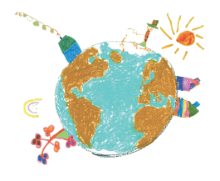Early childhood and schools
Early Childhood Education and Care
The OECD conducts analysis and develops new data in early childhood education and care (ECEC) to provide
valid, timely and comparable international information to help support countries review
and redesign policies to improve their early childhood services and systems.
Thematic Reviews
OECD thematic reviews identify key elements of successful ECEC policies in OECD countries and partner economies. The reviews offer an international perspective of ECEC systems, discuss the strengths and opportunities of different approaches and provide policy orientations that help promote equitable access to high-quality ECEC. The new and ongoing OECD Policy Review on “ECEC in a Digital World” will investigate ways in which the sector responds to digitalisation, harnessing new opportunities while minimising potential risks. To date, six main volumes have been issued as part of the Starting Strong thematic reviews. |
Country Studies
The OECD provides countries with policy advice and in-focus comparative data in ECEC. These are tailor-made, independent reviews of countries’ policies and practices in response to individual country priorities. The OECD has consolidated a rich bank of data containing country-specific ECEC information. Country information |
International Data Development
The OECD develops international data on ECEC to provide insights on how different ECEC systems are organised across the world. As part of this work, the OECD is developing two studies that will assist countries to improve quality, equity and outcomes in the early years. Starting Strong 2017 - Key OECD Indicators on Early Childhood Education and Care International Early Learning and Child Well-being Study (IELS) |
||
Recent PublicationsOECD Education Policy Perspectives: Early childhood education and care workforce development NEW! OECD Education Policy Perspectives: Staff teams in early childhood education and care centres NEW! Strengthening Early Childhood Education and Care in Luxembourg NEW! Strengthening Early Childhood Education and Care in Ireland NEW! Using Digital Technologies for Early Education during Covid-19 NEW! Starting Strong VI: Supporting Meaningful Interactions in Early Childhood education and care Early Childhood Education: Equity, Quality and Transitions - Report for the G20 Education Working Group Helping our Youngest to Learn and Grow: Policies for Early Learning Engaging Young Children - Lessons from Research about Quality in Early Childhood Education and Care
TALIS Starting Strong 2018 Building a High-Quality Early Childhood Education and Care Workforce Quality Early Childhood Education and Care for Children under age 3 |
Education Working PapersNo. 274 The state of the field of computational thinking in early childhood education No. 247 Process quality, curriculum and pedagogy in early childhood education and care No. 243 Literature review on early childhood education and care for children under the age of 3 No. 211 Leadership for quality early childhood education and care No. 197 Starting Strong Teaching and Learning International Survey 2018 Conceptual Framework |
OECD ECEC Network
The Network upholds the mandate of the Education Policy Committee to assist countries to develop effective and efficient policies for education and learning to meet individual, social, cultural and economic objectives.
|
Related OECD WorkEducation at a Glance includes a chapter on Early Childhood Education and Care that The Programme for International Student Assessment (PISA) is an international survey which aims to evaluate education systems by testing the skills and knowledge of 15-year-old students. PISA 2015 findings show that an investment in early education pays dividends in student’s performance at age 15. Education GPS is the OECD source with the latest internationally comparable data on education policies and outcomes. The OECD Child Well-Being Portal is a platform for conducting policy-oriented research on children, enhancing child well-being and promoting equal opportunities among children. The OECD Family Database and its Child Well-Being module currently include 70 indicators under four main dimensions: (i) structure of families, (ii) labour market position of families, (iii) public policies for families and children, and (iv) child outcomes. 21st Century Children looks at the nature of modern childhood and the ways in which schools and communities can work together to protect and guide children while still allowing them the flexibility to make their own mistakes. The Future of Education and Skills 2030 project aims to help countries find answers to what knowledge, skills, attitudes and values are needed for today's students to thrive and shape their world, as well as how instructional systems can effectively develop them. *** |
Contact us
Related Documents



